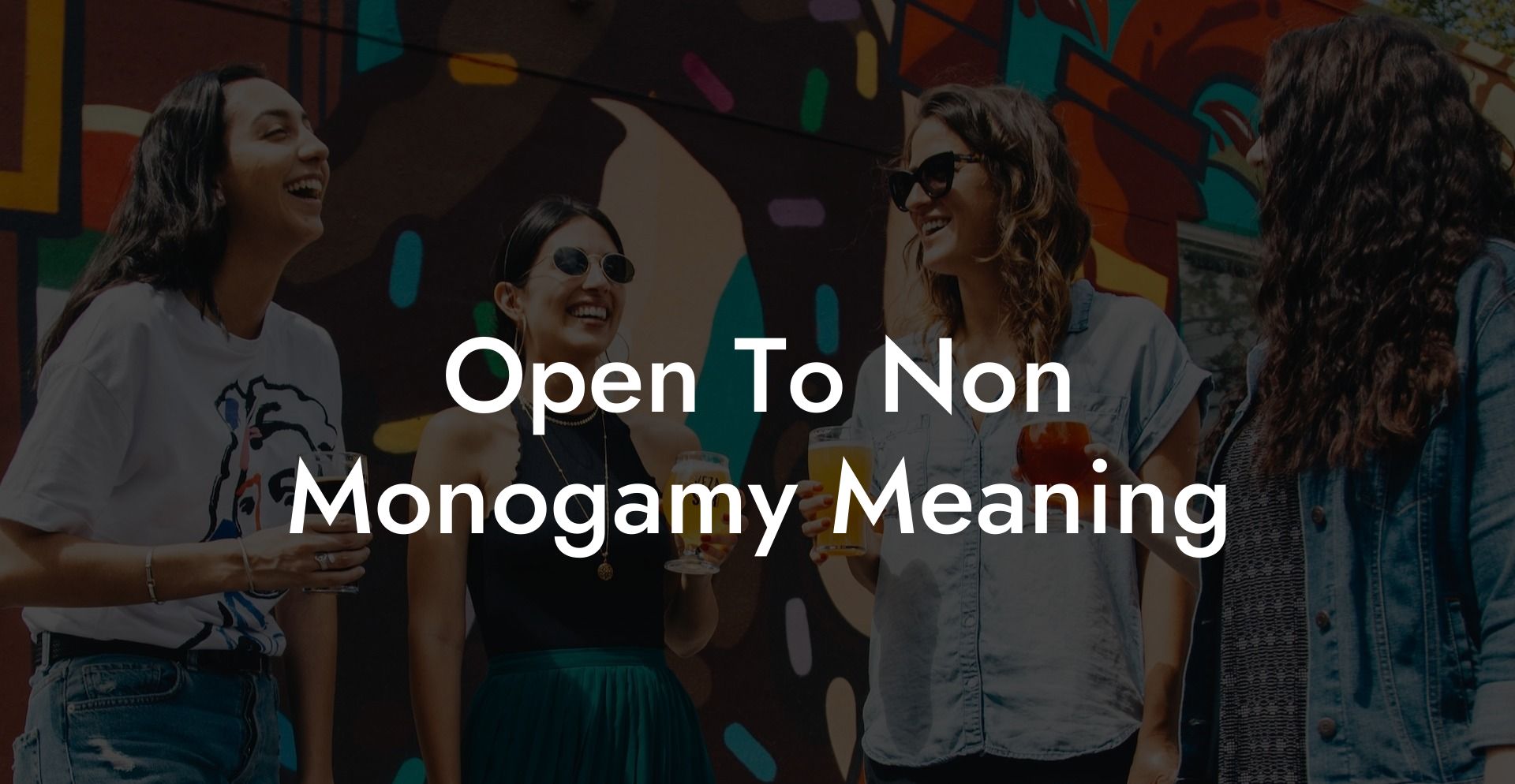Monogamous relationships have long been perceived as the standard norm for couples, but as society evolves and becomes more accepting of diverse relationship styles, more people are considering the concept of non-monogamy. If you've found yourself intrigued by this alternative way of relating, welcome to the world of non-monogamous possibilities! In this detailed guide from The Monogamy Experiment, we'll uncover what it means to be open to non-monogamy and explore the nuances of this relationship style. So, buckle up, and don't forget to share this post and explore other interesting guides on our website!
Open To Non Monogamy Meaning Table of Contents
What Being Open To Non-Monogamy Means
Why People Choose Non-Monogamy
Guidelines To Follow When Being Open To Non-Monogamy
A Open To Non Monogamy Meaning Example Of A Non-Monogamous Relationship
What Being Open To Non-Monogamy Means
Being open to non-monogamy means that you, your partner, or both of you are open to the idea of having more than one romantic or sexual partner simultaneously, with the awareness and consent of all parties involved. This concept is an umbrella term for various relationship styles that fall outside the boundaries of exclusive monogamous relationships. Some common forms of non-monogamous relationships include polyamory, open relationships, swinging, and relationship anarchy, among others.
Why People Choose Non-Monogamy
People choose non-monogamous relationships for various reasons. Some feel that their personal values and beliefs align more closely with non-monogamy, while others are driven by a desire to challenge societal norms and explore unconventional ways of relating. Some common reasons that motivate people to be open to non-monogamous relationships include:
- A strong desire for emotional or sexual variety
- The pursuit of personal growth and self-discovery
- Acknowledging and accepting that it is feasible to love more than one person simultaneously
- A reaction to negative past experiences in monogamous relationships
Guidelines To Follow When Being Open To Non-Monogamy
Being open to non-monogamy requires open communication, trust, and honesty between partners. Here are some basic guidelines to consider when delving into the world of non-monogamous relationships:
1. Communicate openly and honestly with your partner(s) about your feelings, desires, boundaries, and expectations. This is crucial for maintaining trust, preventing misunderstandings, and fostering a healthy relationship.
2. Practice safe sex and consider discussing regular sexual health screenings with your partner(s) to minimize the risk of STIs.
3. Address any jealousy or insecurity that may emerge along the way. It is natural to experience these emotions, but it's essential to manage them effectively and find solutions that work for everyone involved.
4. Continuously reassess and adjust your relationship agreements and boundaries as your circumstances, desires, or feelings change.
5. Respect the autonomy and individuality of your partner(s) and prioritize their well-being, as well as their consent and comfort in the relationship.
A Open To Non Monogamy Meaning Example Of A Non-Monogamous Relationship
Let's use a polyamorous relationship as an example. Alex and Taylor have been together for a few years and decide to explore polyamory together. They communicate openly about their desires, boundaries, and goals. After discussing and setting guidelines in place, they each meet and begin dating new partners. Alex starts dating Chris, while Taylor starts dating Jamie. They continue to maintain open communication and trust with each other throughout this process and renegotiate their boundaries as needed. This realistic example illustrates how non-monogamous relationships can function and thrive healthily when built on solid foundations.
Being open to non-monogamy can be a deeply rewarding and fulfilling experience if approached with awareness, communication, and mutual respect. Whether you're curious about exploring this relationship style or simply seeking a greater understanding, we hope this guide has provided valuable insights and knowledge. Remember that non-monogamous relationships come in various forms, and it's essential to find what works best for you and your partner(s). Don't forget to share this post and dive deeper into the world of non-monogamy with The Monogamy Experiment's other enlightening guides!













